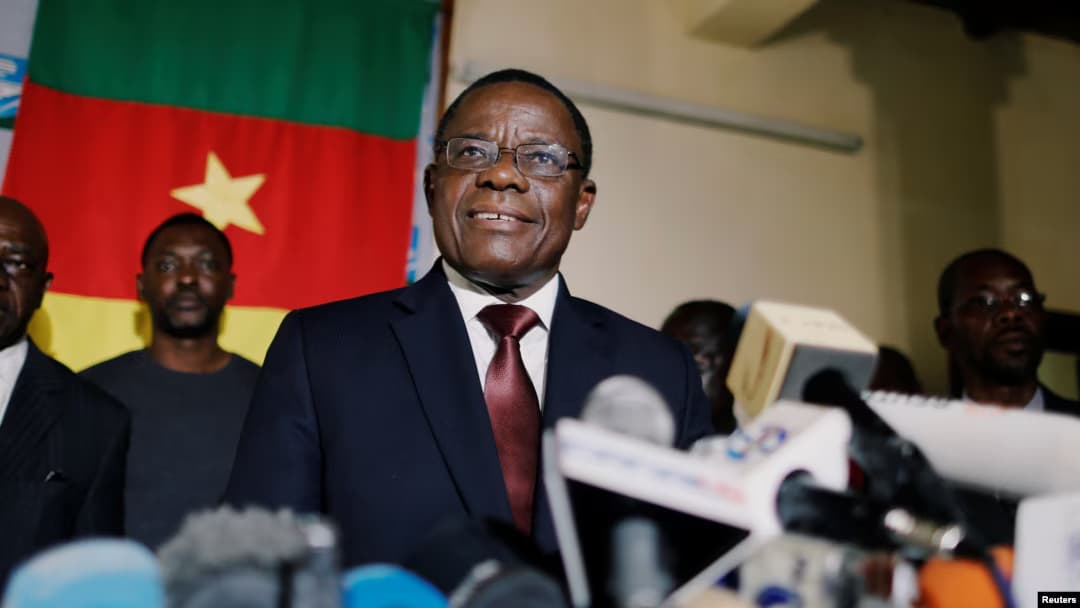We're loading the full news article for you. This includes the article content, images, author information, and related articles.
Opposition leader Issa Tchiroma Bakary's premature victory claim escalates tensions in Cameroon as the nation awaits official results of the October 12 presidential election, placing regional stability under scrutiny.

YAOUNDÉ, CAMEROON – Political tensions are escalating in Cameroon following the nation's presidential election on Friday, October 12, 2025. Opposition leader Issa Tchiroma Bakary has declared himself the winner and vowed not to accept a “stolen vote,” he told the BBC on Friday, October 24. This move has been swiftly condemned as illegal by the ruling party of incumbent President Paul Biya, who has been in power for 43 years.
The 76-year-old Tchiroma, a former government minister, asserted that his team has compiled results from individual polling stations, giving him an “undeniable” victory. However, under Cameroonian law, only the Constitutional Council is empowered to announce official election results, which are expected on Monday, October 27. The ruling Cameroon People's Democratic Movement (CPDM) has dismissed Tchiroma's claims, heightening fears of post-electoral conflict in a nation already grappling with a separatist insurgency in its Anglophone regions and a Boko Haram insurgency in the Far North.
In recent days, protests have erupted in several cities, and at least 20 demonstrators have been arrested amid allegations of electoral fraud. An internet blackout has also been reported across several regions, including the capital Yaoundé, which digital rights advocates warn could be a tactic to restrict information flow during a volatile period.
The election was held amid significant controversy. President Paul Biya, 92, one of the world's longest-serving leaders, sought another seven-year term. His candidacy was contentious, with critics citing his advanced age and long tenure. The political climate was further charged by the disqualification of another key opposition figure, Maurice Kamto of the Cameroon Renaissance Movement (MRC). Cameroon's electoral commission, ELECAM, barred Kamto from running, stating his party was ineligible because it had boycotted legislative elections in 2020. Kamto denounced the decision as a “political crime” designed to sideline him.
ELECAM has defended the integrity of the electoral process. Dr. Enow Abrams Egbe, the body's chairperson, stated on Friday, October 17, that its members operate independently and do not take instructions from any political or administrative authority. Despite these assurances, opposition parties and observers have raised concerns about the body's impartiality.
While there are no immediate, direct implications for Kenya, the situation in Cameroon is a critical test for democratic processes in Central Africa. For Kenyans and the wider East African region, Cameroon's post-election developments serve as a pertinent case study on the challenges of presidential succession, electoral integrity, and the potential for instability when democratic norms are contested. The African Union (AU) and other international bodies are being watched closely, though their engagement in Cameroon's internal affairs has historically been cautious.
The Catholic Church in Cameroon has urged calm as the country awaits the official results. Tchiroma, when asked by the BBC if he would accept defeat, stated he would only do so if the Constitutional Council announces results that come “from the ballot box, not ballot stuffing.” His supporters have reportedly held vigils to “defend their votes.”
The unfolding events in Cameroon highlight the persistent struggle over democratic consolidation in many African nations. With a long-serving ruler, a fragmented opposition, and simmering regional conflicts, the country's path in the coming days will be a significant indicator of its future stability and a point of reflection for nations across the continent, including Kenya, on the importance of robust and transparent electoral institutions. Trade between Kenya and Cameroon remains modest, with Kenyan exports to the Central African nation totaling approximately $7.14 million in 2023. The primary relationship remains within the broader context of African multilateral diplomacy.
Keep the conversation in one place—threads here stay linked to the story and in the forums.
Other hot threads
E-sports and Gaming Community in Kenya
Active 8 months ago
The Role of Technology in Modern Agriculture (AgriTech)
Active 8 months ago
Popular Recreational Activities Across Counties
Active 8 months ago
Investing in Youth Sports Development Programs
Active 8 months ago
Key figures and persons of interest featured in this article